Jianjian Yin
DFEN: Dual Feature Equalization Network for Medical Image Segmentation
May 09, 2025
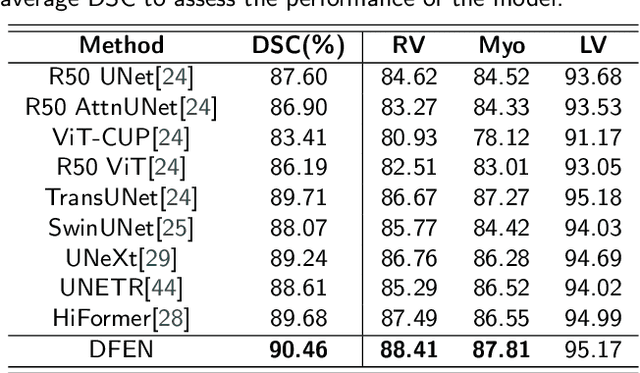
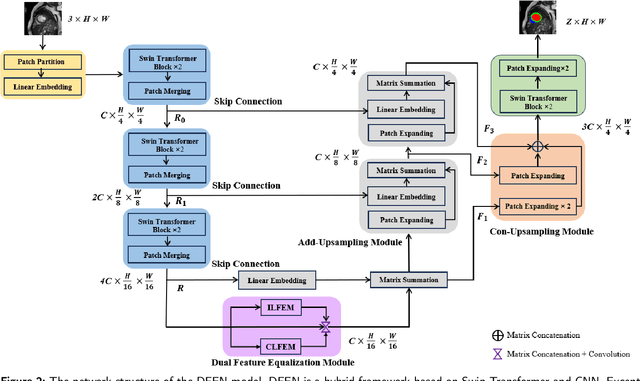
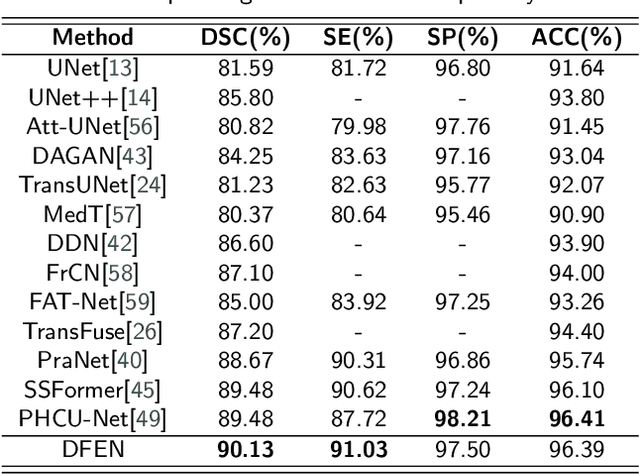
Abstract:Current methods for medical image segmentation primarily focus on extracting contextual feature information from the perspective of the whole image. While these methods have shown effective performance, none of them take into account the fact that pixels at the boundary and regions with a low number of class pixels capture more contextual feature information from other classes, leading to misclassification of pixels by unequal contextual feature information. In this paper, we propose a dual feature equalization network based on the hybrid architecture of Swin Transformer and Convolutional Neural Network, aiming to augment the pixel feature representations by image-level equalization feature information and class-level equalization feature information. Firstly, the image-level feature equalization module is designed to equalize the contextual information of pixels within the image. Secondly, we aggregate regions of the same class to equalize the pixel feature representations of the corresponding class by class-level feature equalization module. Finally, the pixel feature representations are enhanced by learning weights for image-level equalization feature information and class-level equalization feature information. In addition, Swin Transformer is utilized as both the encoder and decoder, thereby bolstering the ability of the model to capture long-range dependencies and spatial correlations. We conducted extensive experiments on Breast Ultrasound Images (BUSI), International Skin Imaging Collaboration (ISIC2017), Automated Cardiac Diagnosis Challenge (ACDC) and PH$^2$ datasets. The experimental results demonstrate that our method have achieved state-of-the-art performance. Our code is publicly available at https://github.com/JianJianYin/DFEN.
Uncertainty-Participation Context Consistency Learning for Semi-supervised Semantic Segmentation
Dec 24, 2024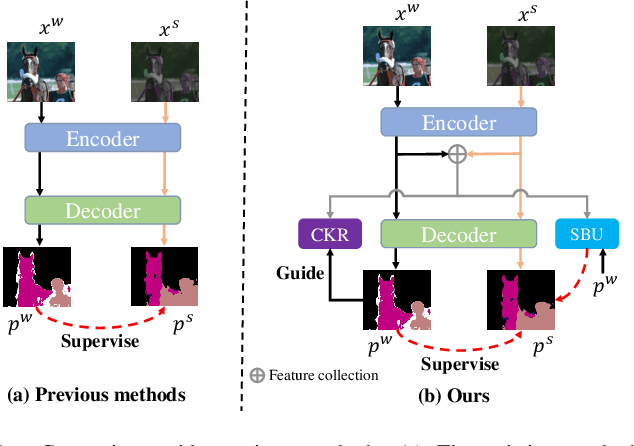
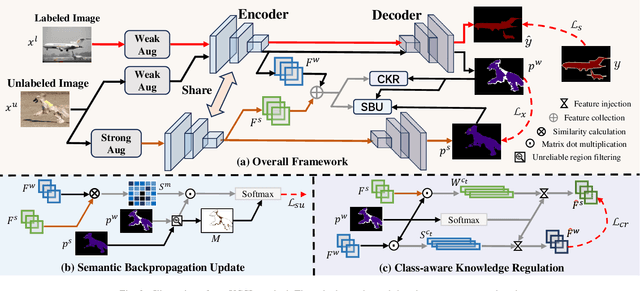
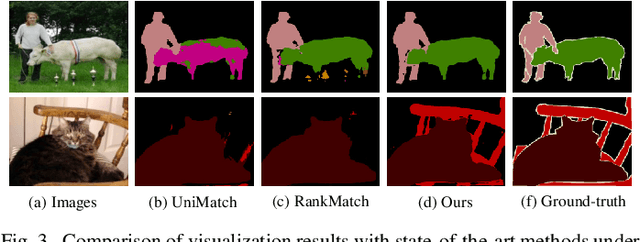
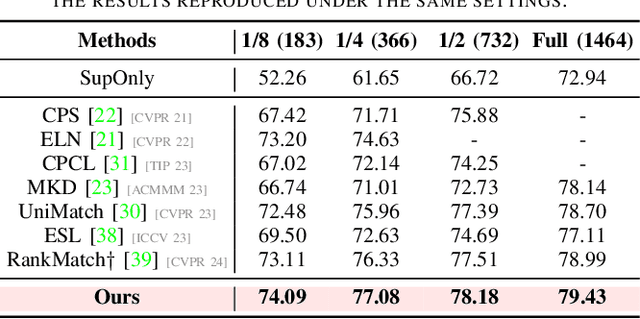
Abstract:Semi-supervised semantic segmentation has attracted considerable attention for its ability to mitigate the reliance on extensive labeled data. However, existing consistency regularization methods only utilize high certain pixels with prediction confidence surpassing a fixed threshold for training, failing to fully leverage the potential supervisory information within the network. Therefore, this paper proposes the Uncertainty-participation Context Consistency Learning (UCCL) method to explore richer supervisory signals. Specifically, we first design the semantic backpropagation update (SBU) strategy to fully exploit the knowledge from uncertain pixel regions, enabling the model to learn consistent pixel-level semantic information from those areas. Furthermore, we propose the class-aware knowledge regulation (CKR) module to facilitate the regulation of class-level semantic features across different augmented views, promoting consistent learning of class-level semantic information within the encoder. Experimental results on two public benchmarks demonstrate that our proposed method achieves state-of-the-art performance. Our code is available at https://github.com/YUKEKEJAN/UCCL.
Class-level Multiple Distributions Representation are Necessary for Semantic Segmentation
Mar 14, 2023Abstract:Existing approaches focus on using class-level features to improve semantic segmentation performance. How to characterize the relationships of intra-class pixels and inter-class pixels is the key to extract the discriminative representative class-level features. In this paper, we introduce for the first time to describe intra-class variations by multiple distributions. Then, multiple distributions representation learning(\textbf{MDRL}) is proposed to augment the pixel representations for semantic segmentation. Meanwhile, we design a class multiple distributions consistency strategy to construct discriminative multiple distribution representations of embedded pixels. Moreover, we put forward a multiple distribution semantic aggregation module to aggregate multiple distributions of the corresponding class to enhance pixel semantic information. Our approach can be seamlessly integrated into popular segmentation frameworks FCN/PSPNet/CCNet and achieve 5.61\%/1.75\%/0.75\% mIoU improvements on ADE20K. Extensive experiments on the Cityscapes, ADE20K datasets have proved that our method can bring significant performance improvement.
 Add to Chrome
Add to Chrome Add to Firefox
Add to Firefox Add to Edge
Add to Edge